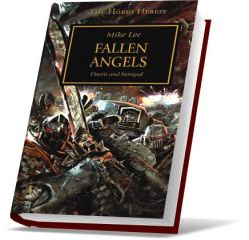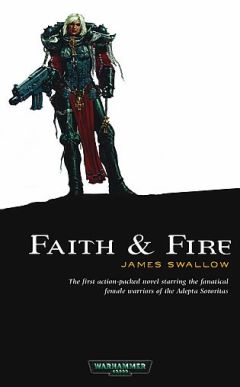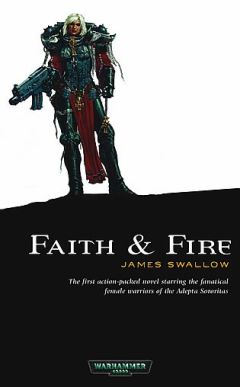Пользователь - WORLDS END
На электронном книжном портале my-library.info можно читать бесплатно книги онлайн без регистрации, в том числе Пользователь - WORLDS END. Жанр: Прочее издательство неизвестно, год 2004. В онлайн доступе вы получите полную версию книги с кратким содержанием для ознакомления, сможете читать аннотацию к книге (предисловие), увидеть рецензии тех, кто произведение уже прочитал и их экспертное мнение о прочитанном.
Кроме того, в библиотеке онлайн my-library.info вы найдете много новинок, которые заслуживают вашего внимания.

Пользователь - WORLDS END краткое содержание
WORLDS END читать онлайн бесплатно
All of which went to show how very inadvisable it was for a youthful translator of the American Commission to meet figures out of the Arabian Nights and cause them to believe that they had assurances of things which they might or might not be going to get!
III
Life does strange things to human beings. Charles T. Alston had been raised in a small farming community of Indiana, and here he was, a specialist in geography, ethnography, and allied branches of learning, helping to decide the destinies of men in lands whose very names were unknown to the people of the Hoosier state. In his village as a boy he had attended a tiny Congregational church, which could not afford a regular pastor but had the services of students from a near-by church school. One of these students had eaten fried chicken and cornmeal mush in little Charlie Alston's home, and had helped to awaken in him a longing for knowledge. Thirty-five years had passed, during which Alston had never seen him; but here he came strolling into the Hotel Crillon - having been in the interim a doctor of divinity, a professor of "Applied Christianity," a Socialist agitator, and finally one of the trusted agents and advisers of President Wilson in Europe.
Lanny watched him while he talked to his old friend, and thought he was one of the strangest-looking men he had ever known. His unusually sweet and kindly features had not merely the pallor of marble, but seemed to have its texture. His hair, mustache, and beard were jet-black. He was obviously not in good health, and his whole aspect was pain-driven, haunted not merely by his own griefs but by those of mankind; his manner was quiet, his voice low, and his language apocalyptic. He rarely smiled, and when he did so, it seemed to be reluctantly, as a concession to other people's ways. A sense of impending doom rested upon his spirit, as if he saw more of the future of Europe than any of the persons he met.
George D. Herron was his name; and later on Alston told Lanny about the tragedy which had broken his health and happiness. He had been one of the leaders of a movement called "Christian Socialist," seeking to bring justice and brotherhood in the name of the proletarian carpenter. A clergyman and professor in a small college of Iowa, Herron had been unhappily married, and had fallen in love with the dean of women of his college. He had left his wife - something not in accord with the ethics prevailing in the "corn and hog belt." The enemies of his dangerous ideas had taken this opportunity to ruin him, and he had been expelled from his job in the college, and had gone abroad with his new wife to live.
That had been a long while ago, and the unhappy professor and his great sin had been pretty well forgotten. In Europe he had come to know working-class leaders, pacifists, humanitarians - those whose spirits could not rest while their fellow-men were being butchered, mutilated, starved, frozen, drowned in mud, and fed upon, hate and falsehood. Living in Geneva, he had been accessible to both sides in the war, and friends and strangers had come to him from Austria and Germany, to sound him out and use him as a means of communicating with the Allied lands. First he had reported to the American embassy in Switzerland, and later to the President direct. He had had something to do with the shaping of the Fourteen Points and had outlined a plan for the forming of a League of Nations. This Socialist agitator who had been driven from his own country in disgrace now possessed the freedom of the Crillon, and could have audiences with the President at a time when the latter was so overburdened that not even the members of his own Peace Commission could see him.
The second time that Lanny met Herron he was walking on the street toward the hotel. He walked slowly, because he suffered from arthritis. Lanny joined him, and he started talking about some of the developments of the day. When they reached the hotel, Lanny waited politely for the elder to go through the revolving doors. He had entered the moving space, when a large military man, coming the other way in haste, pushed the doors violently, and a carved wooden cane which Herron was carrying got caught in the doors and cracked in two. When Lanny came through, his friend was standing with the pieces in his hand, gazing at them and exclaiming: "My Jerusalem cane!"
"Is it valuable?" asked the youth.
"Not to anyone but me. I bought it when I was young and visited the Holy Land. It has been precious to me as a souvenir of deeply felt experiences."
"Oh, I'm sorry," said Lanny, sympathetically.
The other still held the broken pieces. "I am not superstitious," he continued; "but I will tell you a curious incident. When I was leaving home, my sixteen-year-old son asked me why I was carrying that cane, and I said, half playfully: 'I am going to Paris to set up the kingdom of heaven, and this staff from the country of Jesus is a symbol of my purpose.' 'See that they don't break it, Father!' said my son."
The professor looked at the pieces a moment or two longer and then called a bellboy and gave them to him to dispose of. "Absit omen!" he remarked to Lanny.
IV
It was the twelfth of January before the "Supreme Council" held its first session, in the hall of the dingy old Foreign Office on the Quai d'Orsay, just across the Seine from the Crillon. The gray stone structure kept some of the most vital secrets of France, and had high iron railings and heavy gates. Only important personages were admitted to the opening ceremony, but Lanny and his chief were among them, because some of the American delegates might need information about geography. Lanny's duty was the carrying of two heavy portfolios of maps and other data; he would take them with him to many important gatherings, but rarely would open them - instead, he would keep his ears open, and stay close behind his chief; now and then the latter would touch his knee, and Lanny would lean over and whisper what some excited Frenchman was saying. This kind of assistance was not uncommon among the American officials; neither President Wilson nor his closest associate, Colonel House, knew French, and there always had to be whisperers behind their chairs.
The council hall was splendid and impressive, having on the floor a heavy Aubusson carpet, pearl-gray with large red roses; red damask curtains at the windows, superb Gobelin tapestries on the walls. The ceilings were high, and the lights were set in enormous chandeliers. A great many tables were laid end to end in the shape of a square U, covered with green baize, and pink silk blotters which were changed every day. The chairs were gilded, with silk upholstery, and all this splendor was guarded by huissiers wearing silver chains.
At the bottom of the square U sat Georges Clemenceau, Premier of France, a squat little figure with a strange head, bald and flat on top. He had broad humped shoulders, a short neck, sallow complexion, white walrus mustaches, thick, shaggy eyebrows, and a long, square-tailed black coat. At his back was a fireplace with a crackling fire - you would always find that wherever he sat, for he was seventy-eight, and diabetic, and his blood was growing chilly. Over the fireplace was a figure of Peace holding up a torch - perhaps to warm his soul, which may also have grown chilly. Always he wore gray silk gloves on his hands, because he suffered from eczema.
Near him sat President Wilson, stiff and erect, with lean ascetic face and shining glasses. Beyond him was the Prime Minister of Britain with pink cherubic features and a little white mustache. Next to him was Balfour with his air of aristocratic boredom, cultivated not for this occasion but for life. The other personages tapered off down the line. In the background were generals wearing uniforms and medals, and potentates in the varicolored robes of the East. Marshal Foch was there, and General Pershing, and other military men, because the first matter in hand was the renewal of the armistice, which was for a month at a time, and each time the Marshal had thought of some new ways to tighten the screws upon the hated foe.
After that they took up the question of representation at the conference, and the future methods of procedure. It was supposed to be a deliberative assembly, but after a few sessions it became apparent that everything had been fixed in advance. Someone would make a proposal, and while he was speaking Clemenceau would sit with hands folded and eyes closed, and no one would know whether he was asleep or not. But the moment the speaker finished, the chairman would raise his heavy eyelids and say: "Any discussion?" - and then, before anybody could get his wits together to answer, he would bring down his gavel and snap out: "Adoptй!" Said Professor Alston to Lanny: "He's fighting the next war."
V
At the head of President Wilson's Fourteen Points stood the phrase: "Open covenants of peace openly arrived at." Taking this statement at its face value, American press associations, newspapers, and magazines had sent their correspondents to Paris, and there were now a hundred and fifty of them in a ravenous condition, having waited a whole month for something to happen. The rest of the world had contributed twice as many; and now they were informed that no press representatives would be admitted to sessions of the conference, but that they would get "handouts" from a press bureau. When they got their first one they found that it contained exactly forty-eight words.
A howl went up that was heard, quite literally, all the way around the world. The hundred and fifty Americans appointed a committee and stormed the American press bureau; a war began that did not end with the Peace Conference, but was continued into the history books. Men took one side or the other - and from that choice you could know what part they were going to play, not merely in this particular melodrama, but in all the others which were to follow upon its heels.
France had been at war for four bloody years, had suffered grievous wounds, and now stood with one foot upon her deadly foe. During these four years the people of France had been under a complete censorship; officials and military men between them had decided not merely what should be done but what should be said and thought. Now suddenly it was proposed to lift this censorship and turn people loose to reveal secrets and criticize policies - in short, to say what they pleased, or what the enemy might hire them to say. "What?" cried the shell-shocked officials. "Open the sessions of the conference, and let newspaper men hear the wrangles of the diplomats, and tell the whole world about national ambitions and demands? If you do that, you will have a series of new wars on your hands - the Allies will be fighting among themselves!"
To this the believers in open covenants openly arrived at replied that the affairs to be settled by the conference were the affairs of the people, and the people had a right to know what was being planned and done. Democracy could not function unless it had information. The only way of lasting peace was to turn the conference into a means of education, an open forum where problems were threshed out in the sight and hearing of all.
So the debate raged; and like everything else with which the assemblage dealt it was settled by compromise and evasion. It was agreed that the press should be admitted to the "plenary sessions"; whereupon these were turned into formal affairs to ratify decisions already worked out by the so-called "Council of Ten." When the press took to clamoring against the secrecy of the "Council of Ten," the real work was transferred to a secret "Council of Four." Presently this became a "Council of Three," and this holy trinity not only told no pressmen what it was doing, but to make sure that they couldn't find out, it employed but one secretary and kept but one record.
VI
Of course only a small portion of the people of Paris were occupied with the Peace Conference. The common people, mostly women and elderly men, worked at their daily tasks, and gave their thoughts to getting food with prices steadily rising. The well-to-do had their cares also, for it was a violent world, exposed to sudden unforeseeable changes. Only speculators throve; and whenever Robbie met his son he had stories to tell about what these were doing.
The munitions industry was shot to pieces, reported the salesman. Budd's had been forced to close down; all that magnificent plant which had been like a beehive - its chimneys were empty and its gates were locked. "But I thought we still had contracts with the government!" exclaimed the youth. The father answered that it didn't pay to run big plants for a few orders, and they had canceled the contracts on the basis of part payments.
"But what will all those working people do, Robbie?"
"I hope they saved their money. For us the war ended too soon. Nobody could foresee that Germany, was going to collapse like that."
"We still have those fine new plants, haven't we?"
"What are plants if you can't run them? They're just a drain; upkeep, insurance, and taxes - the government soaks you as hard whether you're making anything or not."
"I never thought of that," confessed Lanny.
"Your grandfather isn't thinking about anything else very much."
Robbie was sending home long reports, mostly without a gleam of hope. There were plenty of people who wanted to go on fighting, but where were they to get the money? Who would want to finance new wars? And, anyhow, the fighting would be done with munitions already manufactured. There were mountains of it piled up all over France, and on the Italian front, and the Balkan front, and the Palestine front - everywhere you looked on the map. It could be bought for almost anything you wanted to offer.
"I've been trying to interest Father in buying some as a speculation," added Robbie. "But he says we're not going into the junk business. I can't very well do it myself while I'm the European sales agent of our firm."
In Lanny's mind was a vision of that depressing old Colonial house in Newcastle, with a worried and overworked businessman sitting at a desk piled high with papers - and having in one drawer a bundle of pamphlets setting forth the Confession of Faith of his grandfather. "What does he expect to do, Robbie?"
"We've got to figure out ways to turn some of the plants to peacetime uses. And that's going to cost a lot of money."
"Well, we made it, didn't we?"
"Most of it was distributed as dividends, and people aren't going to put it back in unless we can show them new ways of making profits."
"Surely, Robbie, there's going to be a demand for every sort of goods! People are clamoring for them all over."
"It doesn't matter how much they clamor, unless they've got money. The ones that have money daren't risk it when there's so much uncertainty - and when those in authority can't make up their minds about anything. We've got a President who spent his time studying Latin and Greek and theology when he ought to have been learning the elements of finance and credit."
Robbie said that Clemenceau and Lloyd George were every bit as ignorant about economic questions; he wanted businessmen and financiers called in to advise. With one-third of Europe in revolution, and another third hanging on the brink; with tens of millions of people not knowing where to get their next day's bread; with trade disorganized, railways broken down, river transport sunk, harbors blockaded, and millions of men still kept out of production, liable to revolt and go home, or to start shooting one another - the man to whom they all looked for guidance had brought a shipload of specialists in geography and history and international law, and only a handful who knew finance, production, or trade.
Похожие книги на "WORLDS END", Пользователь
Пользователь читать все книги автора по порядку
Пользователь - все книги автора в одном месте читать по порядку полные версии на сайте онлайн библиотеки My-Library.Info.



